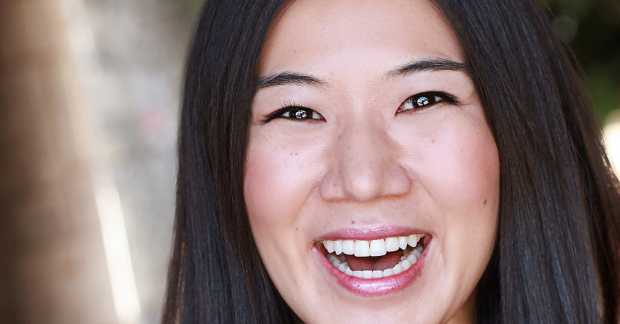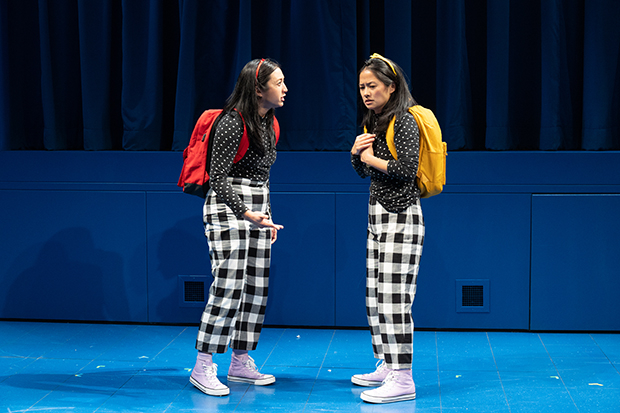Interview: A Peerless Off-Broadway Premiere for Playwright Jiehae Park
Park discusses the first New York production of her 2015 dark comedy about college admissions and murder.
Playwright Jiehae Park is prescient in a way, but does prescience apply in a case like her dark comedy Peerless? First presented in 2015 at Yale Rep, the play is a loose riff on Shakespeare's Macbeth, which follows a pair of Asian American twins who turn to murder when another student takes what they feel is there place at the university of their dreams.
Ok, maybe murder doesn't always factor into things, but in the case of peerless, it predates the 2019 college admissions scandal, which may have rocked higher education, but didn't really surprise anyone. Perhaps least of all Park, who has noticed that everyone has a story about the educational system, which is the saddest part of all. Here, she tells us all about that, as well as this long-awaited off-Broadway premiere via Primary Stages at 59E59.

(image provided by the production)
What is your personal origin story for peerless?
I went to a very competitive, largely Asian American magnet program in the suburbs of DC — the kind of program that's always announcing which of their students has won the latest Intel/NASA/etc. competition. Senior year, I remember a friend burst into tears because she had been waitlisted at every Ivy but one, and she wailed that the school she'd gotten into was the one "everyone knew was the crappy Ivy." Another friend got in early to Georgetown and got snarky remarks from classmates that she got in "because she checked the Native box" — this is a young woman who, in addition to attending the same competitive program, had worked since middle school (rising to manager of a local store at sixteen) and received a Presidential citation for rescuing passengers from a local train crash. The perceived weight of this one opportunity — where you went to college — was making all these kids behave in seemingly insane, cruel ways.
This play has been seen around the country over the last seven or eight years. What is it like to bring it to New York after all this time?
It's wild. [Director] Margot Bordelon and I first worked on this play together in a workshop production at the Cherry Lane Mentor Project in 2015, followed by the premiere at Yale Rep that year. It feels full circle to be coming back and doing it together again after the play has made the rounds at professional and university theaters since then.

(© James Leynse)
How has the play deepened and grown over the course of its various productions, to now? Are you making many changes for the off-Broadway run?
The time has allowed us to explore the more layered, complex emotions in the second half of the script. It's a very challenging play to put up (lots of locations, technically demanding for actors and designers), so the first few times it felt like we really had to focus on just getting it up. I finally cracked a scene I had struggled with when we did a production together in Marin in 2017. And over the years, I've had intense conversations with Indigenous colleagues about representation in the play — where intent may not match impact, especially given the lack of Native representation in mainstream media. I've been surprised to hear — both from theaters producing the play and from audiences — what it was they took away, and I'm grateful to have this opportunity in New York to sharpen the play and make that intent as clear as possible.
This play premiered before the big college admissions scandal with all the celebrities involved popped up. How do you as playwright look at your own material in this play in light of the real-life cases that came to light?
Sad to say there's always something, isn't there? Everyone I talk to about this play seems to have their own crazy story about something that recently happened to someone (or someone's kid) they know.
What do you want NYC audiences to take away from Peerless at Primary Stages?
That these characters — as crazy as they may seem at first — are all human beings. They're children. And they're getting these narratives of scarcity and competition and cutthroat survival from somewhere. What's our responsibility to question these narratives and change them?








